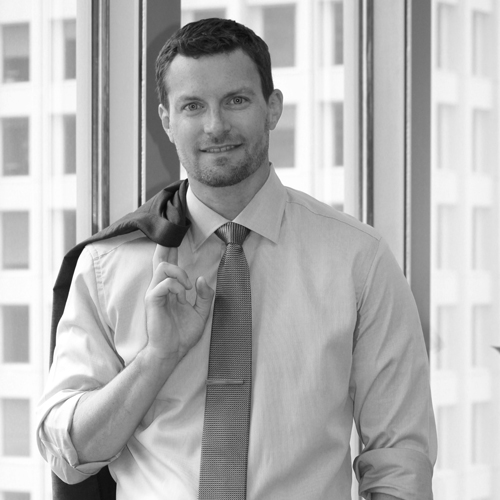Ethan Orlinsky didn’t quite know what he was getting into when he applied for a position at Major League Baseball Properties (MLB Properties). He knew it involved baseball, and that was enough—then, and now, 22 years later.
Orlinsky doesn’t expect job applicants to have as much passion for the game as he does, but they should have passion for the job and be cognizant of the public scrutiny the league experiences. The amount of attention paid by the media and fans to even the smallest inner workings is much greater on this stage than one would expect in a corporate setting. “Fans feel a sense of ownership when it comes to baseball,” Orlinsky explains. “While that may sound daunting, it motivates each and every one of us to be the very best we can be.”
Monetizing and protecting Major League Baseball (MLB) trademarks and other intellectual property rights is among the major responsibilities of Orlinsky and his department. More than $600 billion is lost worldwide to counterfeiting each year. Once available only through transient vendors and flea markets, today counterfeit and infringement goods are sold worldwide and through all mediums. “Violators have become more sophisticated,” Orlinsky says.
The collaborative work of the Coalition to Advance the Protection of Sports Logos has helped bolster MLB’s anti-counterfeiting programs, but it’s critical to work together to be most effective, he adds.
Enhancing and protecting the brands of MLB is an enormous task that requires both seasoned veterans and rookies. Along with intelligence, common sense, and relevant experience, there are five attributes Orlinsky looks for when building his legal lineup. It’s what he calls the “five-tool system” for hiring, and it is an analogue to the method scouts use to assess prospective baseball players. It’s also similar to the process taught in law school for analyzing and solving problems.
1. Candidates must be able to identify issues comprehensively and clearly to ask the right questions.
2. For every problem, applicants should be able to present various solutions. This fosters collaboration with clients and allows them to select the approach they prefer.
3. Applicants must have good judgment. Since clients often turn to legal for insights and advice, lawyers should have well-reasoned and -considered recommendations.
4. To serve its clients, the legal team needs to have excellent verbal and written communication skills. They need to be clear and concise. It’s extremely important to focus on both what is said and how it is delivered; a respectful tone is paramount. Orlinsky gives every applicant a writing test specific to the position. He wants to see the candidate’s unedited work, focusing not only on the substance of his/her responses, but also on how he/she analyzes issues.
5. “To do our jobs effectively, we need to be socially intelligent,” says Orlinsky. That means knowing how to work with a variety of approaches and personality types. “Bulldogs and zealots have their place, but we need to work with our clients—including the 30 MLB clubs and our business counterparts—not roll over them,” he adds. All of his lawyers must be intelligent, but the best of the best are those who are smart, are humble, have a sense of what clients need, and deliver it.


